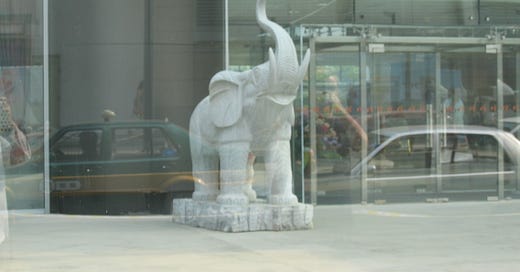Tesla's Trojan Superchargers: All your data are belong to us
In the IoT, ceding your UX, device control or subscriber relationships for convenience is the road to perdition
In a brilliant move, Tesla has opened its supercharger networks to other car makers. While the VWs, Fords and Hyundais of the world may view this as a way of dealing with their customers’ range anxiety, they are about to give their most bloodthirsty competitor access to their customers.
Tesla’s chargers (or anyone’s EV charger) is not a power socket. It’s a sophisticated data port and Internet communication system. For it to work properly, it needs to talk to the car and the grid, and make sure that they are who they say they are. Of course, it’s mobile app controlled, and the user needs an account with Tesla, whether they own a Tesla or not. Despite Apple’s and Google’s best efforts to let their iPhone users control which third party app sees what, most sophisticated App developers have figured out how to troll enough user information out of the App to totally profile the user for whatever insidious purpose they see fit. The Tesla App knows where you live, how fast you drive, when you hit pedal to the metal and where you go and when.
Now, put that App on a Ford Mach-E owner’s phone and tell them to go drive the American dream, and they’ll be spending a lot of time at Tesla superchargers, since those stations work, work well and are all over the map. And, while the Ford guy’s at a supercharger, he’s ogling those “beautiful” Model S’ driving in and driving away while talking to Tesla owners who talk about their cars with the same enthusiasm that a meth addict talks about their meth pipe. In a short period of time, it’s going to be “Have you Driven a Tesla Lately”. Even better, even if the driver is a die hard Ford fan, Tesla’s skimming money off his energy budget, can upsell him Solar, a Powerwall and electricity through their Energy as a Service system, or simply target him with ads for car and energy services when their AI decides he’s most susceptible. After all, Tesla is not a car maker, it’s an energy company with very advanced AI that sells mobile storage batteries.
The really insane part of this is that the computer inside the charger talks to the car. The data sucked out of the car and the associated Apps can be used to understand how well your competitors’ cars and batteries are doing. In the long term, the Electric Vehicle war will be fought and won over how well batteries and user interfaces work, and with this move, Tesla has turned every one of its chargers into a commercial espionage agent.
Why are other car makers falling for this? Surely, they know better. The reality is that they have failed at making robust, scalable and usable charging networks. As late entrants, it’s insane to do what Musk did over 10+ years. Also, as a culture, car makers don’t make gas stations, so why should they make charging stations (see earlier reference to Tesla being an energy co)? Tesla, of course, is the Apple of this game - a totally closed ecosystem built from the ground up; even their User Interfaces are built from the ground up. On that note, Apple and Google themselves are another check mark in the column of “it sucks to be a 20th century car maker trying to make it on the 21st century Internet”. In a recent survey, 70+% of all new American car buyers would not consider a car that didn’t support Apple CarPlay or Android’s version of that. Volvo, Honda, etc. have made a blood pact with Google to wrap their steel around Android and Apple’s new CarPlay controls the whole dashboard (gas, hybrid, EV, doesn’t matter). If that’s all the user sees, who cares if it’s a Ford or a Chevy? How many people still remember what an HTC phone is? and, who cares?
One of the most brilliant aspects of The Innovator’s Dilemma is the depth of its simplicity. When I first heard Christensen explain it, I thought to myself, “this is obvious”. It’s not - the fact that sophisticated multibillion, hundred year old companies act like the proverbial elephant in front of a mouse is mind boggling. But it’s a textbook case of generals fighting the last war: The people at the top of the legacy car makers got there by designing the best fuel injector in 1993, not by mastering the Internet of Things, Big Data and the hegemonist practices of Internet entrepreneurs. So it’s natural for these people to dwell on whether to put a three pointed star vs a badge on the hood of a new car, instead of haunting your customers’ dreams so they see your electrons (and data) everywhere.
Sic Transit Gloria Mundi



Thanks for this, Talal.
Sounds like Tesla is only opening ~20% of it's charging network to all comers. And this is due to federal subsidies and pressure from the Biden administration. If the data is so valuable, why wouldn't Tesla open up more of it's charging network?
https://cleantechnica.com/2023/02/15/tesla-supercharger-network-will-be-partially-open-to-us-drivers-by-next-year/